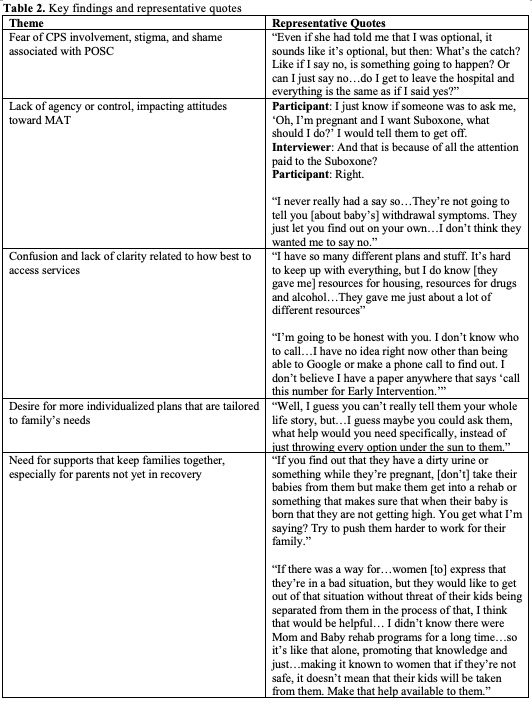Health Services Research
HSR 3: Social and Medical Complexity
583 - Plans of Safe Care: Perspectives of Birth Parents of Substance-Exposed Infants
Publication Number: 583.319

Yuan He, MD, MPH, MSHP (she/her/hers)
Assistant Professor of Clinical Pediatrics
Children's Hospital of Philadelphia/University of Pennsylvania
Philadelphia, Pennsylvania, United States
Presenting Author(s)
Background: Prenatal substance exposure impacts a growing number of families. Federal legislation passed in 2016 mandates healthcare providers to notify child protective service (CPS) agencies and offer a comprehensive care plan for all infants born affected by prenatal substance use, including licit and prescribed medications. These “plans of safe care,” or POSC, are distinct from reports to child welfare for concerns of abuse or neglect, and aim to provide supportive services for infants and caregivers impacted by substance use. Little is known about birth parents’ perceptions and experiences with POSC.
Objective:
To examine birth parents’ perceptions and experiences regarding POSC, particularly as they relate to trust, agency, and acceptance, and their engagement in the services offered and provided.
Design/Methods: This is a qualitative interview study. P</span>arents who were offered a POSC in Philadelphia in the prior year were recruited from birth hospitals and community-based programs with telephone consent and interview procedures. Transcripts were analyzed with Atlas TI using an inductive, grounded theory approach to identify content themes.
Results: 12 birth parents were interviewed (Table 1). Fear of CPS involvement and stigma were commonly associated with the POSC process. Some birth parents described lacking agency in prenatal and postnatal care decisions, and 2 expressed regret regarding their decision to start MOUD due to increased scrutiny related to POSC. Despite acknowledgement that consolidated resource information was helpful, parents did not know how to access services following hospital discharge. Finally, parents desired more individualized plans tailored to their unique family needs, and specified the need to support birth parents who are not yet in recovery while keeping families together (Table 2).
Conclusion(s): Plans of safe care aim to support substance-exposed infants and birth parents, however stigma, confusion regarding next steps, and fear of CPS involvement undermine these goals. Policymakers should consider separating POSC from child welfare to avoid exacerbating existing fear and mistrust. Healthcare providers and organizations serving this marginalized population should prioritize parents’ agency and trust through messaging that provides clarity and transparency around POSC’s association with CPS, their voluntary nature, and available coordination services to support engagement after discharge. Findings can inform health system leaders and policymakers in their efforts to improve outcomes for substance-exposed infants and their families..jpg)

